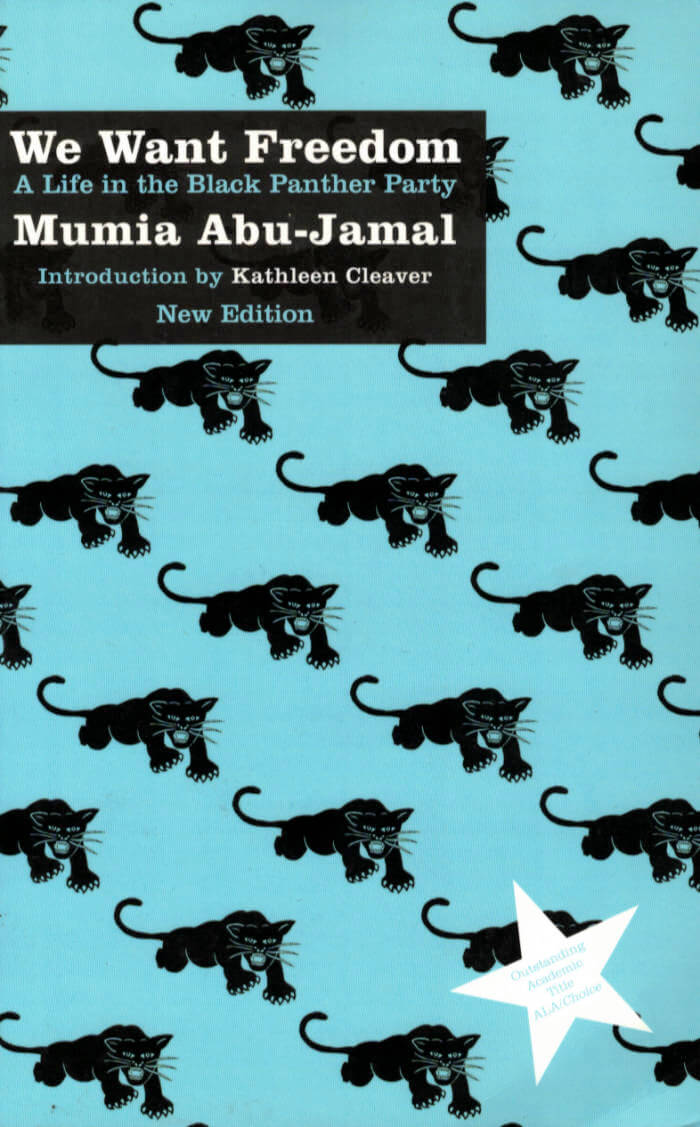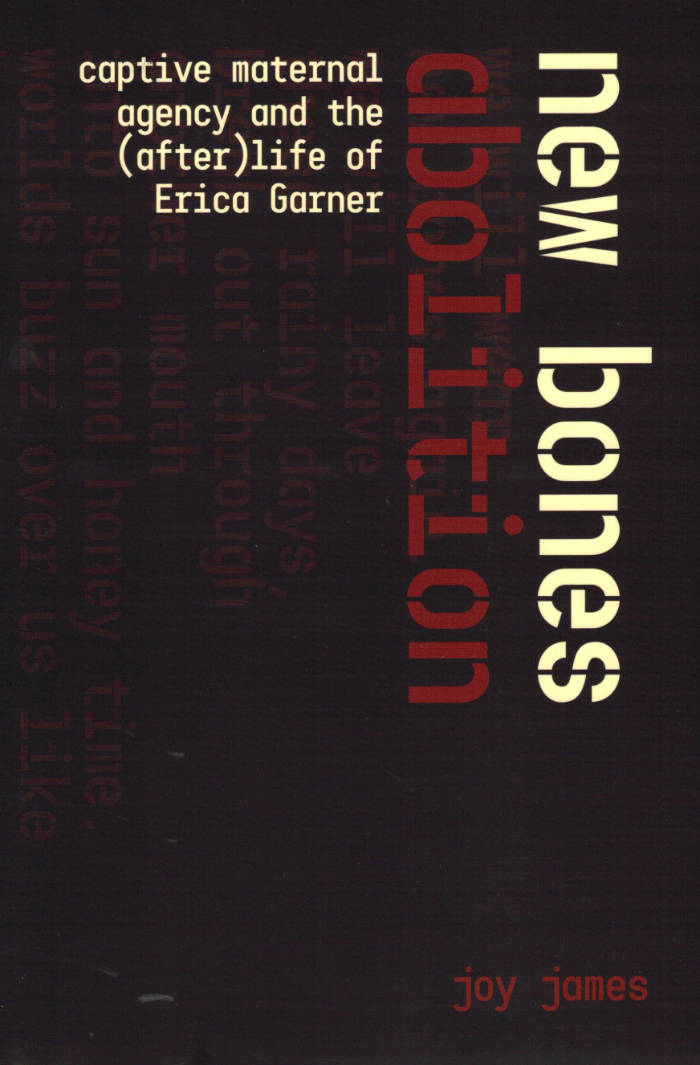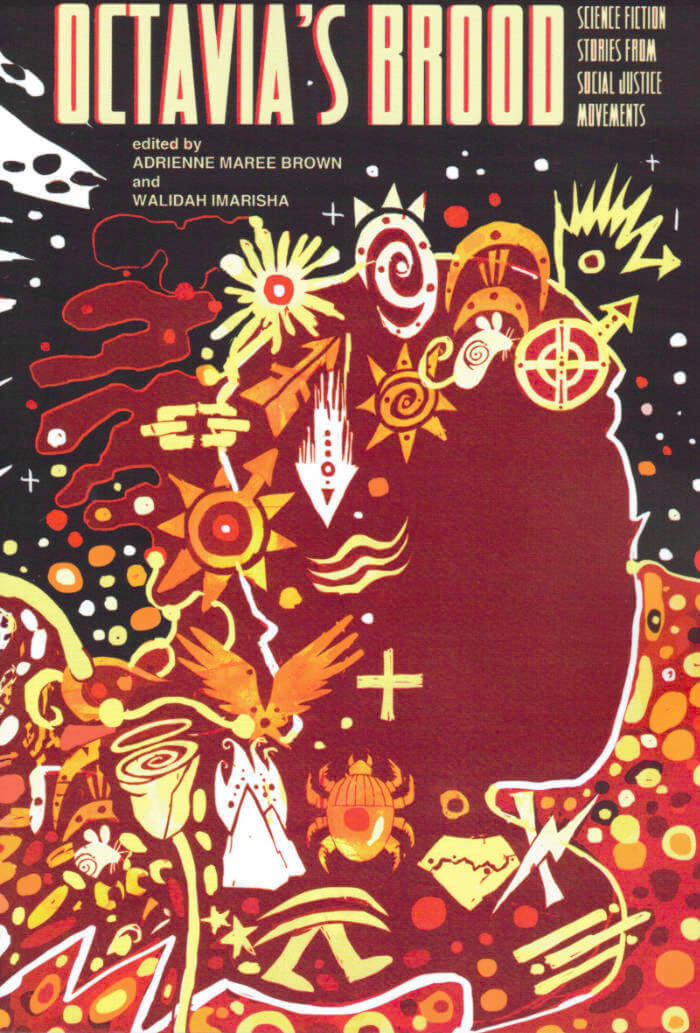Mumia Abu-Jamal
Mumia Abu-Jamal

Still Black, Still Strong
Dhoruba Bin Wahad, Assata Shakur and 1 more
An essential document of the Black Panther Party written by three leading thinkers and party activists who were jailed following the FBI’S 1969 mandate to destroy the organization “by any means possible.”
Still Black, Still Strong is partly based upon the 1989 videotape Framing The Panthers by producers Chris Bratton and Annie Goldson. It recounts the stories of Dhoruba Bin Wahad, Mumia Abu-Jamal and Assata Shakur, all of whom were arrested and jailed during the COINTELPRO probe of the Black Panther Party.
Dhoruba Bin Wahad, who organized chapters of the Black Panther Party in New York and along the Estern Seaboard and worked with tenants in Harlem and on drug rehabilitation in the Bronx, was accused of murdering two officers while still in his teens and imprisoned for 19 years. He always maintained his innocence and won his freedom by forcing the FBI to release thousands of classified documents proving that he had been framed. The justice department eventually rescinded Bin Wahad’s conviction and he was released in 1990, seven months after the documentary premiered.
Mumia Abu-Jamal, a journalist who headed the Black Panther free breakfast program for inner-city school children in Philadelphia, was also accused of the murder of an officer and sent on death-row, where he still is today.
Assata Shakur was a college educated social worker in her twenties when she was accused of shooting a cop, then arrested and tortured and denied medical treatment. Her interview was conducted in Cuba where she has been exiled since her escape from a New Jersey women’s prison in 1975.
Bin Wahad, Shakur and Abu-Jamal offer a little-known history and an incisive analysis of the Black Panthers’ original goals, which the U.S. Government has tried to distort and suppress. As one confidential, 1969, memo to J. Edgar Hoover put it, “The Negro youth and moderates must be made to understand that if they succumb to revolutionary teaching, they will be dead revolutionaries.”
Edited by Jim Fletcher, Tanaquil Jones and Sylvère Lotringer

We Want Freedom: A Life in the Black Panther Party
Mumia Abu Jamal, America’s most famous political prisoner, is internationally known for his radio broadcasts and books emerging “Live from Death Row.” In his youth Mumia Abu-Jamal helped found the Philadelphia branch of the Black Panther Party, wrote for the national newspaper, and began his life-long work of exposing the violence of the state as it manifests in entrenched poverty, endemic racism, and unending police brutality. In We Want Freedom, Mumia combines his memories of day-to-day life in the Party with analysis of the history of Black liberation struggles. The result is a vivid and compelling picture of the Black Panther Party and its legacy.
Applying his poetic voice and unsparing critical gaze, Mumia examines one of the most revolutionary and most misrepresented groups in the US. As the calls that Black Lives Matter continue to grow louder, Mumia connects the historic dots in this revised/updated edition, observing that the Panthers had legal observers to monitor the police and demanded the “immediate end to police brutality and the murder of Black people.” By focusing on the men and women who were the Party, as much as on the leadership; by locating the Black Panthers in a struggle centuries old—and in the personal memories of a young man—Mumia Abu-Jamal helps us to understand freedom.
And more

New Bones Abolition: Captive Maternal Agency and the (After)Life of Erica Garner
New Bones Abolition addresses "those of us broken enough to grow new bones" in order to stabilize our political traditions that renew freedom struggles.
Reflecting on police violence, political movements, Black feminism, Erica Garner, Mumia Abu-Jamal, caretakers and compradors, Joy James analyzes the "Captive Maternal," which emerges from legacies of colonialism, chattel slavery and predatory policing, to explore the stages of resistance and communal rebellion that manifest through war resistance. She recognizes a long line of gendered and ungendered freedom fighters, who, within a racialized and economically-stratified democracy, transform from coerced or conflicted caretakers into builders of movements, who realize the necessity of maroon spaces, and ultimately the inevitability of becoming war resisters that mobilize against genocide and state violence.
New Bones Abolition weaves a narrative of a historically complex and engaged people seeking to quell state violence. James discusses the contributions of the mother Mamie Till-Mobley who held a 1955 open-casket funeral for her fourteen-year-old Emmett Till, murdered by white nationalists; the 1971 rebels at Attica prison; the resilience of political prisoners despite the surplus torture they endured; the emergence of Black feminists as political theorists; human rights advocates seeking abolition; and the radical intellectualism of Erica Garner, daughter of Eric Garner slain in 2014 by the NYPD. James positions the Captive Maternal within the evolution of contemporary abolition. Her meditation on, and theorizing of, Black radicals and revolutionaries works to honor Agape-driven communities and organizers that deter state/police predatory violence through love, caretaking, protest, movements, marronage, and war resistance.

In Pursuit of Revolutionary Love: Precarity, Power, Communities
Violence is arrayed against us because we’re Black, or female, or queer, or undocumented. There is no rescue team coming for us. With that knowledge, we need a different operational base to recreate the world. It is not going to be a celebrity savior. Never was, never will be. If you’re in a religious tradition that is millennia-old, consider how the last savior went out. It was always going to be bloody. It was always going to be traumatic. But there’s a beauty to facing the reality of our lives. Not our lives as they’re broken apart, written about, and then sold back to us in academic or celebrity discourse. But our lives as we understand them. The most important thing is showing up. Showing up and learning how to live by and with others, learning how to reinvent ourselves in this increasing wasteland. That’s the good life.
Foreword by Da’Shaun L. Harrison.
Afterword by Mumia Abu-Jamal.
"Joy James’s Revolutionary Love is umph-degree love; or love beyond measure. It is anything love. It is love without reckoning. It is love that dares all things, beyond which others may find the spirit-force to survive; to live to fight another day. Such love is also fighting itself, for the sake of ensuring that others may live." — Mumia Abu-Jamal

Octavia's Brood: Science Fiction Stories from Social Justice Movements
Walidah Imarisha, adrienne maree brown
Whenever we envision a world without war, prisons, or capitalism, we are producing speculative fiction. Organizers and activists envision, and try to create, such worlds all the time. Walidah Imarisha and adrienne maree brown have brought 20 of them together in the first anthology of short stories to explore the connections between radical speculative fiction and movements for social change.
These visionary tales span genres like sci-fi, fantasy, horror, magical realism, but all are united by an attempt to inject a healthy dose of imagination and innovation into our political practice and to try on new ways of understanding ourselves, the world around us, and all the selves and worlds that could be.
Also features essays by Tananarive Due and Mumia Abu-Jamal, and a preface by Sheree Renée Thomas.